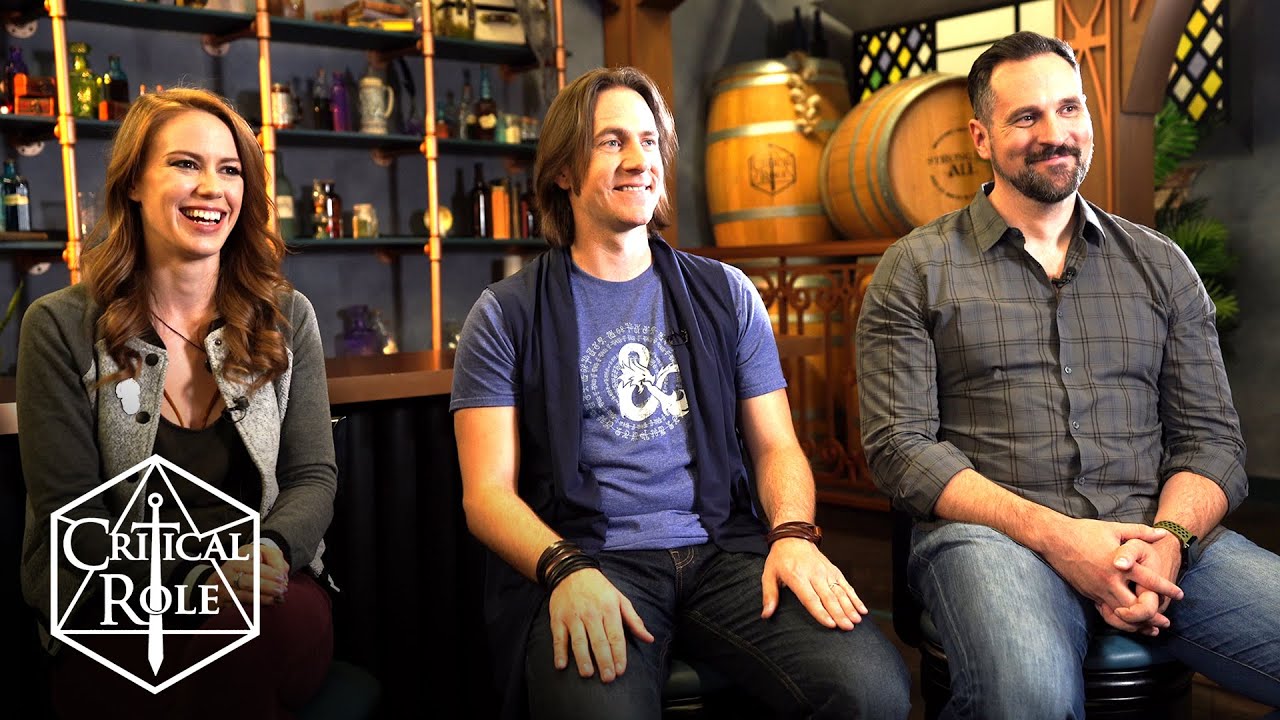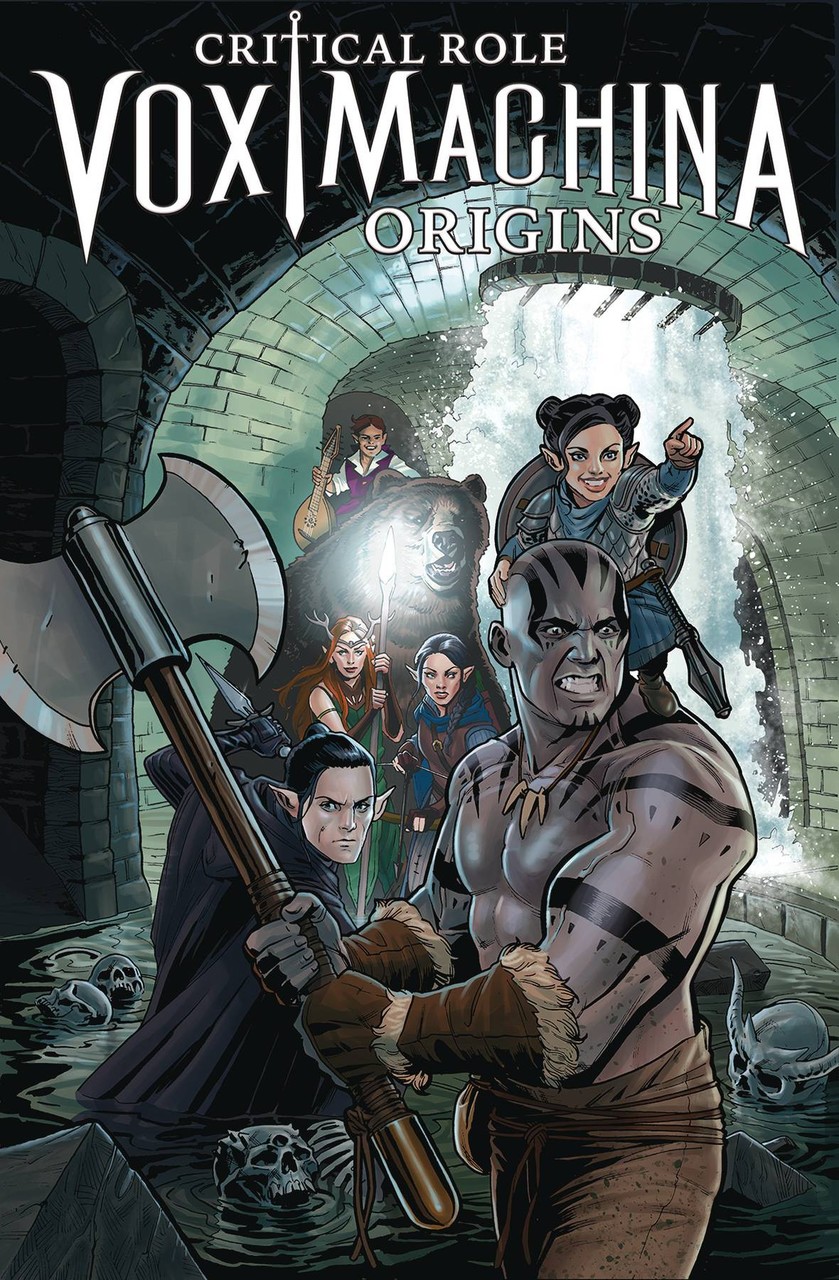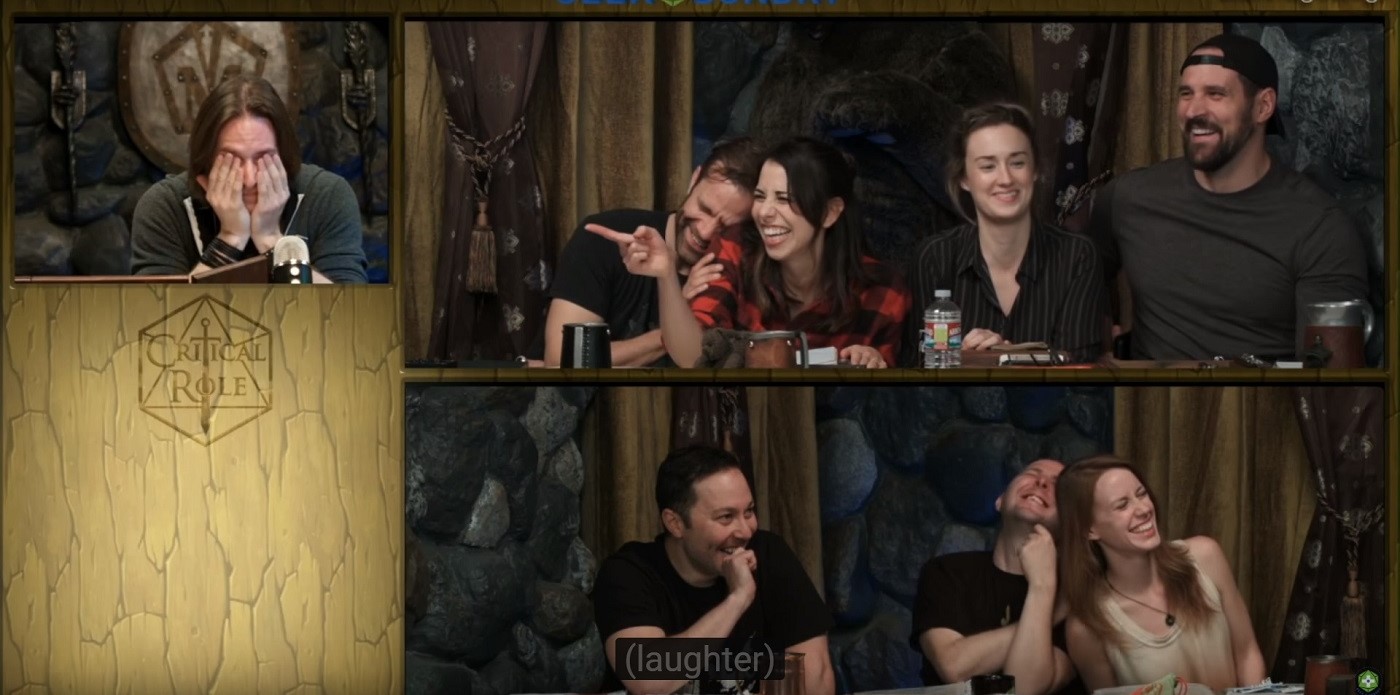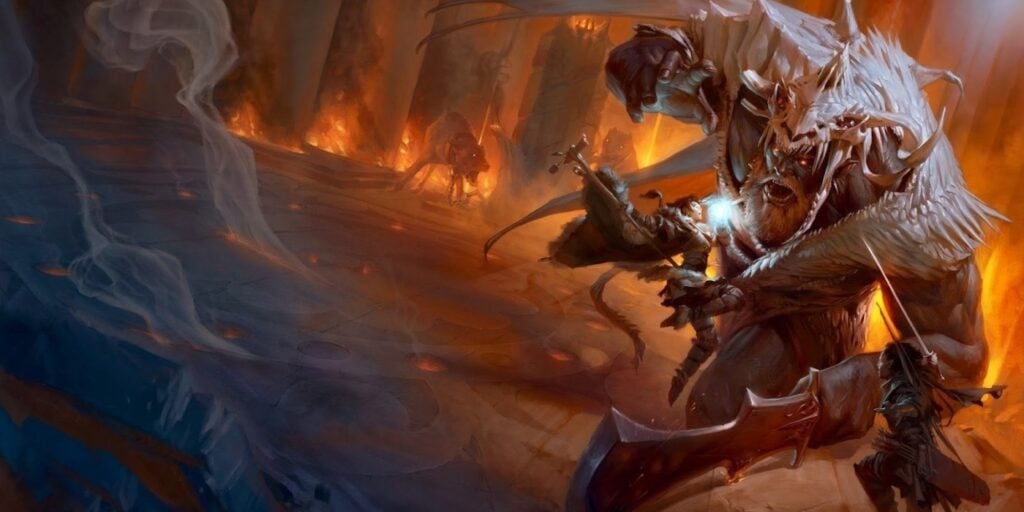Critical Role On A New Genre Of TV – Dungeons & Dragons

Matt Mercer, Marisha Ray, and Travis Willingham recently spoke on their role in pushing D&D/Actual Plays as a new genre of entertainment.
In a recent interview with CNet, the three heads of the Critical Role hydra: Marisha Ray, Creative Director, Matt Mercer, Chief Creative Officer, and Travis Willingham, CEO, sat down to speak about the strange journey that has taken these voice actors from the voices of your favorite characters in video games and anime, to the voices of your favorite characters on livestreamed D&D shows. It’s been a series of twists and turns that took them from a home game put on the web through Geek and Sundry to the heads of a production company about to create two seasons of an animated series for Amazon–here are their thoughts on what’s taken them there.
A few interesting points seemed to keep coming up. For one, you get a sense of how very fortunate they are to have Marisha Ray acting as creative director–throughout the interview, she keeps the group grounded in reality, tempering expectations by reminding them that it’s a lot of work to keep the Critical Role machine turning. Would CR be what it is without Ray? Almost certainly not.
When she talks about the necessity of multiple inroads to getting caught up on the story that is hundreds of hours long–a daunting task for anyone who doesn’t have the time to sit down for 3-4 hours of video–you begin to see the strange considerations that have come up as a result of this new genre emerging.
Matt Mercer calls out a big part of what makes Critical Role and some of the other popular Actual Play shows work; it’s not a three or four hour long show that you’re tuning in for, but rather it feels like you’re hanging out with friends who are playing the game. Of course, it takes the cast’s own active engagement to create that environment. Willingham talks about the need to stay engaged even when their characters aren’t having a moment in the spotlight to help maintain that air of ‘hanging out with people you know’ and it bears out. We take our cues from the people we’re watching–that’s why sitcoms have laugh tracks, why dramatic music helps sell an emotional moment, and why the reactions of players in and out of a scene matters.
The fact that their professional voice actors helps them get to that point faster. But there’s no substitution for genuineness. The audience can tell when someone’s having a blast; it’s what they’re tuning in for. To paraphrase Marisha Ray puts it: the world is kind of on fire right now, and everyone’s in the mood for a good long story.
Now let’s turn it over to you: do you watch/listen to any RPG shows? If so, what draws you in? What keeps you listening? Which are your favorites? Let us know in the comments!







